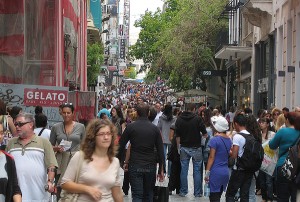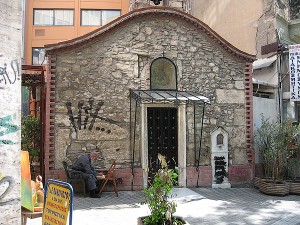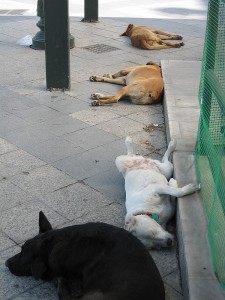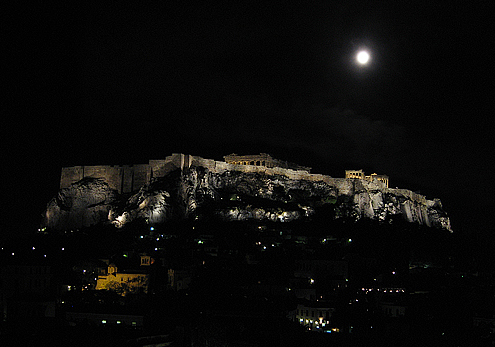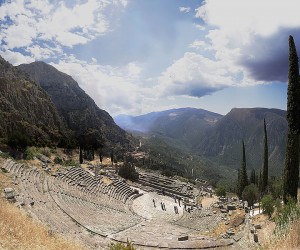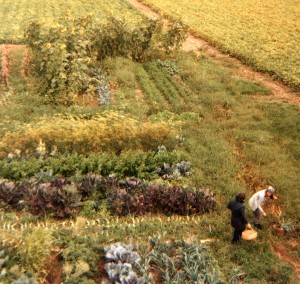With just five hours of sleep, I hit the streets of the Plaka. I had planned to explore this part of the city on my first day in Athens and then make my way to the Parthenon the next before heading on to Delphi on Monday. Located beneath the northern and eastern slopes of the Acropolis, the Plaka is the oldest part of Athens. I had studied several maps of the area, but finding the labyrinth of streets with names like Lysikratous and Plateia Monastirakiou overwhelming, I decided to wander and let my intuition guide me.
The sky was gray that first morning, it was hot and humid, and the streets were crammed with tourists. Resembling a cross between Canal Street in New York and Fisherman’s Wharf in San Francisco, the Plaka is filled with little shops and cafes, and in the midst of it all are ancient stone chapels and cathedrals. With graffiti covering storefronts, plate glass windows, lampposts, benches – in short, anything and everything with a surface – there’s a feeling of entropy and there’s a forlorn air about the shopkeepers, too, almost as if they’re waiting for the next chapter of Greek history to begin.
And then there are the dogs. I considered starting a list of ‘Things I Wasn’t Expecting to See in Athens and Wish I Hadn’t”, but not wanting to focus on the negative, I quickly put that project aside. I must tell you about the dogs, though, and the cats, too. The dogs are just lying about with their eyes closed. With no homes, they have no sense of purpose and little will to live. The cats seem to be doing a little better – at least they have the challenge of going after mice and rats. Thankfully, animal advocates with help from other countries in Europe and from Canada are working to develop a number of programs to alleviate this deplorable problem.
After wandering up and down dozens of streets, I came upon a modest taverna at the end of an alley. As is typical of such establishments, the menu is only a suggestion of what might be available on any given day. Settling on stuffed cabbage leaves, I’m told there aren’t any today, and I’m invited to walk up to the cafeteria-style display to see what’s being served. I select a stew of lamb, potatoes, onions and sweet peppers in a red wine sauce and return to my table to wait.
Jacqueline Kennedy Onassis once said, “You are about to have your first experience with a Greek lunch. I will kill you if you pretend to like it.” My first Greek lunch was surprisingly good, and I silently thank Matt Barrett and his Athen’s Survival Guide for encouraging his readers to seek out restaurants serving authentic Greek food.

